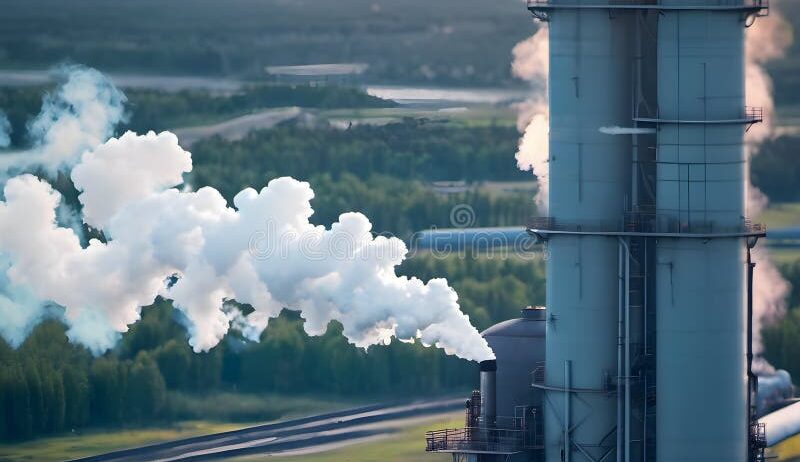The world has reached an alarming crossroads, where the choices made at the dining table reverberate across the atmosphere. Among the various culprits that contribute to climate change, one seemingly innocuous item reigns supreme: the cheeseburger. The cheeseburger is emblematic of indulgence and satiation, yet this culinary delight comes with an environmental cost that is often overlooked. Understanding the connection between cheeseburgers and global warming is essential to grasp the gravity of our food choices.
At the heart of this discussion lies the concept of carbon footprint—the total amount of greenhouse gases emitted directly or indirectly by an individual, organization, or product. The cheeseburger, a simple fusion of beef, cheese, and bread, embodies a complex web of environmental consequences that extend far beyond its mouthwatering allure. The production of the components that create a cheeseburger—particularly beef—demands an astonishing amount of resources and generates a significant volume of greenhouse gases.
To comprehend the “Cheeseburger Effect,” we must embark on a journey through the lifecycle of this quintessential fast-food item. Beginning with the rearing of cattle, we encounter the first link in the chain. According to the Food and Agriculture Organization (FAO), livestock farming accounts for 14.5% of global greenhouse gas emissions, a staggering figure that underscores the impact of our meat-centric diets. The methane emitted by cattle during digestion—a potent greenhouse gas with a warming potential exceeding that of carbon dioxide—is just one component of the ecological footprint left by meat production.
The environmental toll does not end with methane emissions. Cattle farming requires vast swathes of land, often at the expense of forests and wildlife. Deforestation for pasture and feed crops leads to the loss of biodiversity, while simultaneously releasing stored carbon dioxide into the atmosphere. This pernicious relationship between cheeseburgers and deforestation serves as a poignant reminder of how our appetites can fuel climate change.
Next, consider the resources required to cultivate feed for cattle. Corn and soy, often synonymous with industrial agriculture, necessitate exorbitant amounts of water and fertilizers, which lead to nutrient runoff and water pollution. These fertilizers, rich in nitrogen, contribute to the creation of dead zones in aquatic ecosystems, further jeopardizing biodiversity and marine health. The cheeseburger, therefore, is not merely a gastronomic pleasure, but an intricate artifact of environmental degradation.
Moreover, the transportation of ingredients to fast-food establishments further exacerbates the environmental burden. Logistics involve significant fossil fuel consumption, contributing to carbon emissions that perpetuate global warming. Each bite taken from a cheeseburger reflects a far-reaching supply chain, intertwined with complex issues of energy consumption and emissions.
On the surface, the cheeseburger represents simplicity. Yet, when one peels back the layers, its composition reveals alarming truths about food systems and their impacts on the planet. In the face of climate change, it is imperative to rethink our eating habits, especially in societies where fast food is a prevalent part of the culture.
Addressing the “Cheeseburger Effect” requires a multifaceted approach, urging individuals, communities, and policymakers to engage in conscious consumption. By opting for plant-based alternatives or reducing red meat intake, individuals can significantly lower their carbon footprints. The transition from beef-heavy meals to legumes, grains, and vegetables not only benefits the planet but also paves the way for innovative culinary trends that celebrate an array of flavors without compromising the environment.
Moreover, the concept of sustainability in agriculture must be prioritized. Regenerative farming techniques that focus on soil health, water efficiency, and biodiversity can mitigate some negative impacts of livestock farming. By supporting local farmers who practice sustainable methods, consumers can help shift the paradigm away from industrialized agriculture towards a system that respects both the earth and the communities it sustains.
Education plays a crucial role in this journey. Awareness campaigns about the environmental implications of dietary choices can ignite discussions surrounding food consumption. Fast-food corporations must also be held accountable; transparency in sourcing and production practices can empower consumers to make informed decisions. Through combined efforts, a cultural shift can emerge, where the cheeseburger is reimagined in a more sustainable context.
As we grapple with the realities of climate change, we must acknowledge that our plates hold more power than we often realize. Each meal is a statement, one that reflects our values and aspirations for the future. Embracing plant-based options and supporting sustainable practices can cultivate a food system that nourishes both people and the planet.
In conclusion, the “Cheeseburger Effect” serves as a launching pad to scrutinize our relationship with food and its environmental ramifications. By understanding the intricate connections between our choices and climate change, we can begin to unearth viable paths toward a sustainable future. Each bite bears significance; let us transform the cheeseburger from an emblem of environmental degradation into a symbol of responsible consumption and stewardship for our planet.







